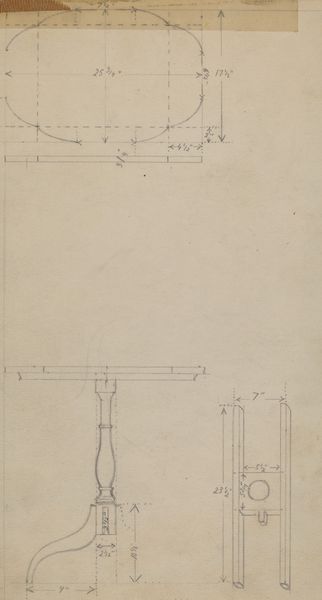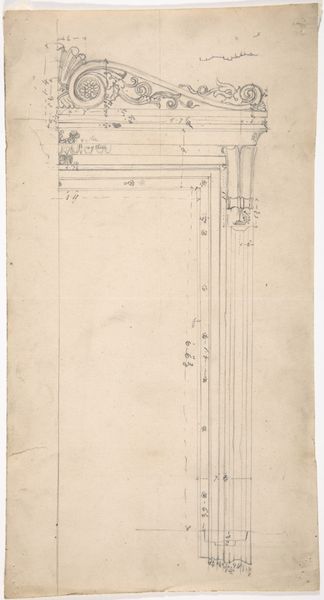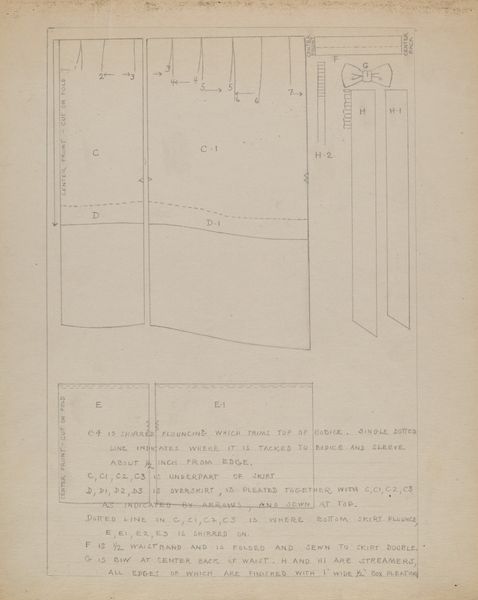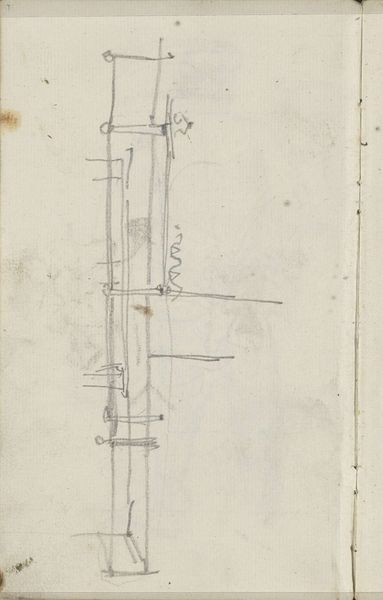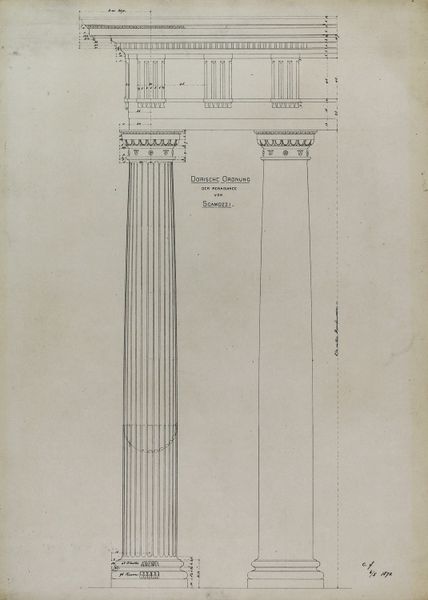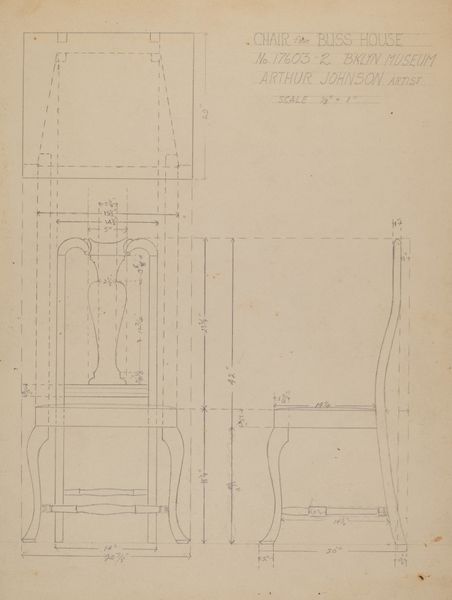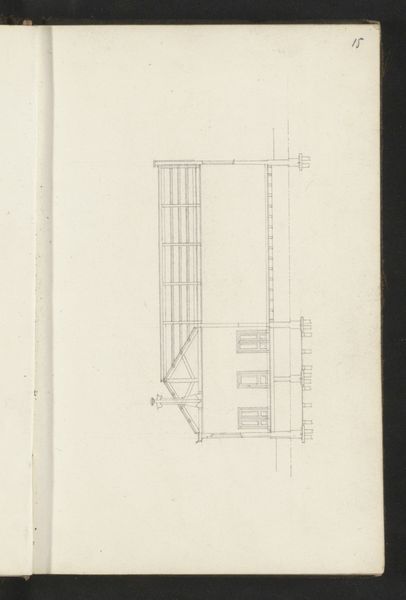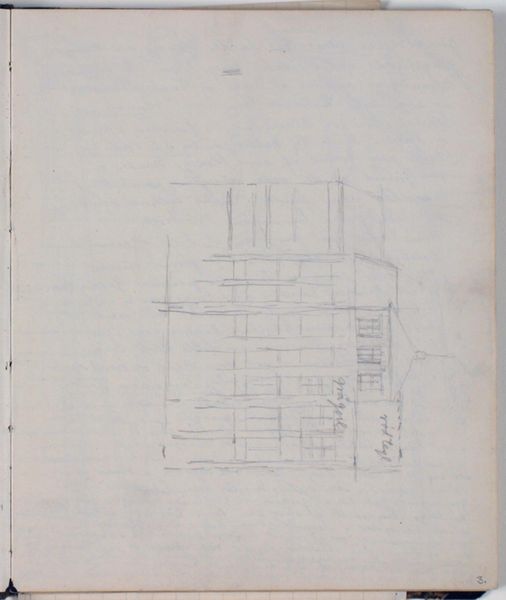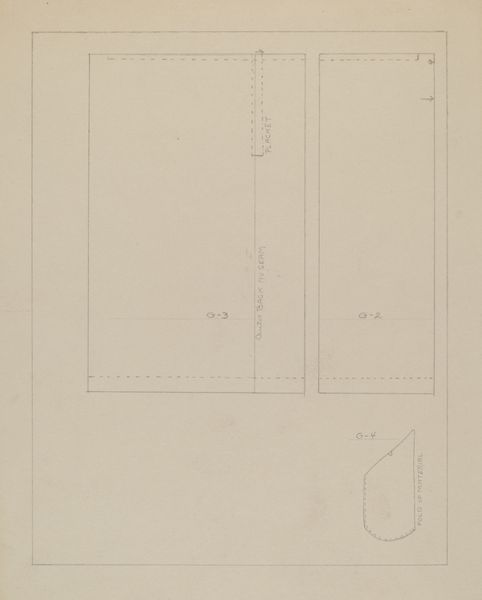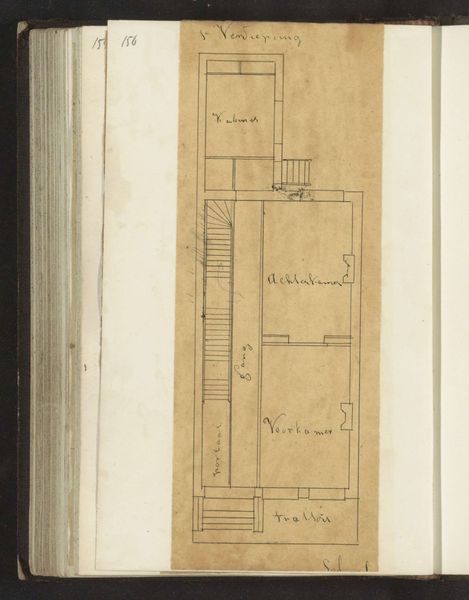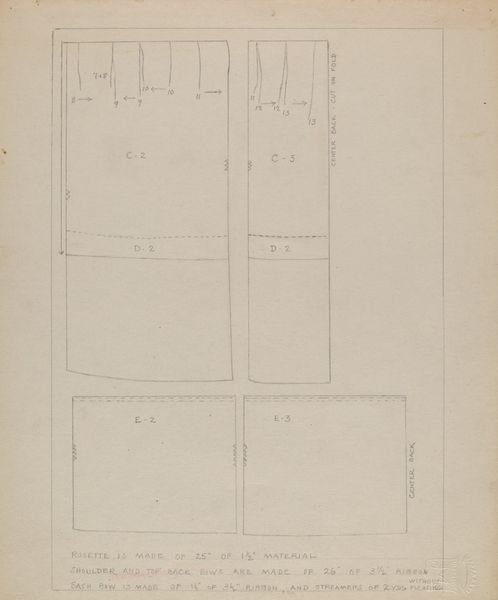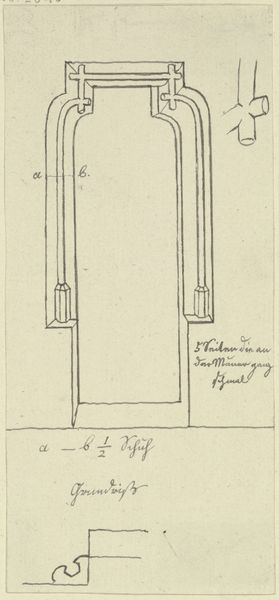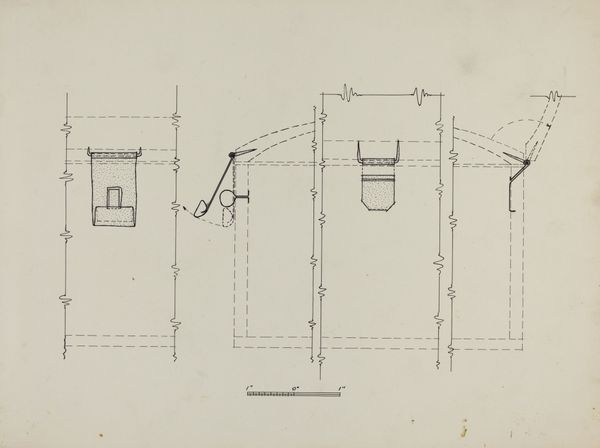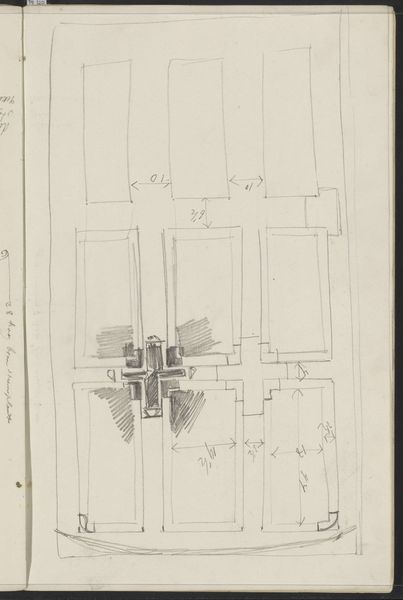
Orders of Architecture, Greek Ionic Order from the Temple of Minerva Polias, Athens, Greece, Elevation 23 - 1870
0:00
0:00
drawing, paper, pencil, architecture
#
drawing
#
16_19th-century
#
greek-and-roman-art
#
classical-realism
#
paper
#
form
#
geometric
#
ancient-mediterranean
#
column
#
pencil
#
line
#
architecture
Dimensions: 60 × 45 cm (23 5/8 × 17 3/4 in.)
Copyright: Public Domain
Carl Furst rendered this elevation of the Greek Ionic order of architecture in ink on paper. The detailed linework illustrates the Temple of Minerva Polias in Athens, Greece. The precision in Furst's drawing speaks to the values of order and reason. Notice how the verticality of the fluted columns contrasts with the elaborate volutes at the capital. Furst's composition emphasizes the column's structure, and we can appreciate the geometric harmony achieved through careful measurement and proportion. This drawing can be read as a semiotic system. Each line and curve functions as a sign, conveying architectural principles rooted in classical ideals. Furthermore, this piece challenges our perceptions of space by representing three-dimensional architecture on a two-dimensional plane. Through meticulous detail, Furst invites us to examine how classical forms embody cultural values and philosophical concepts.
Comments
No comments
Be the first to comment and join the conversation on the ultimate creative platform.
